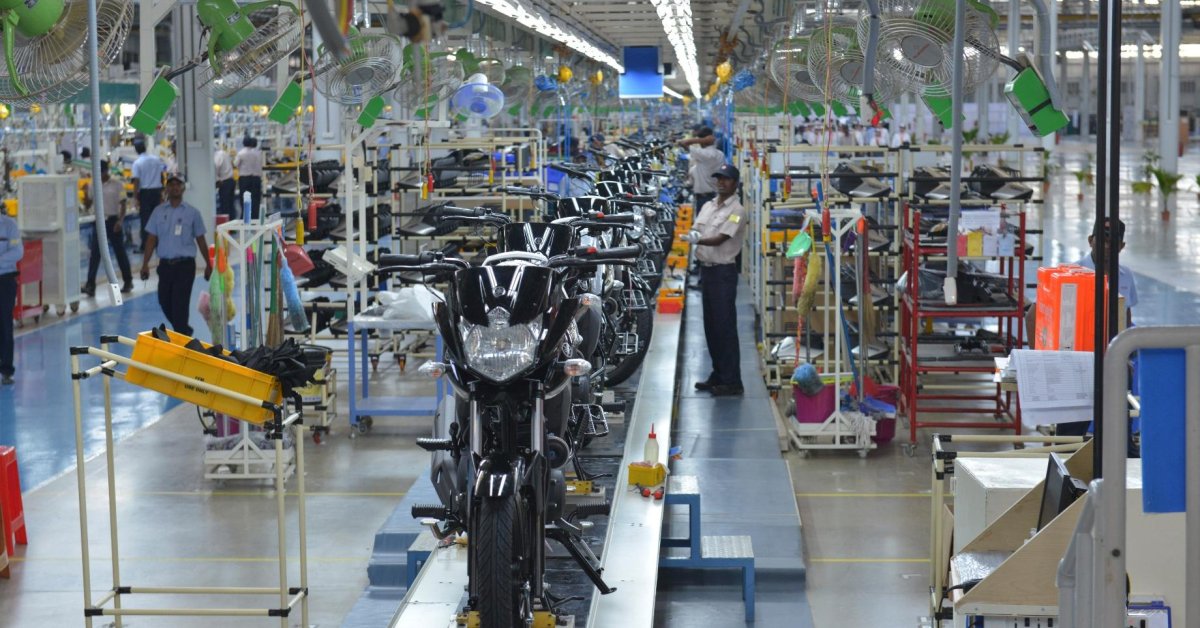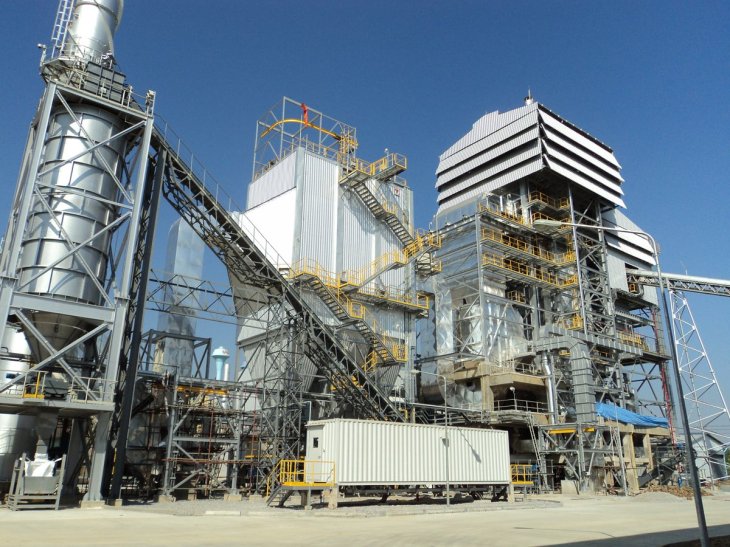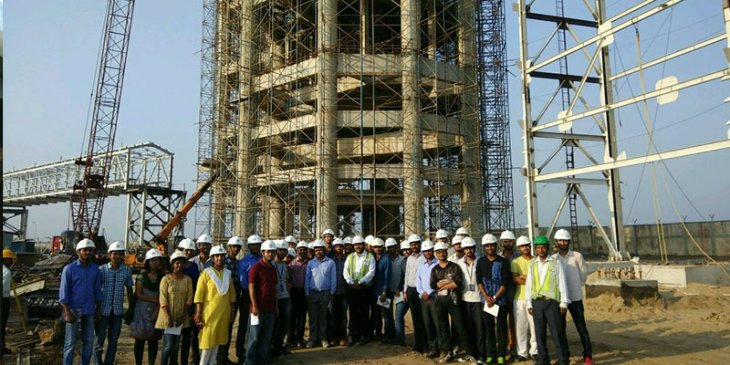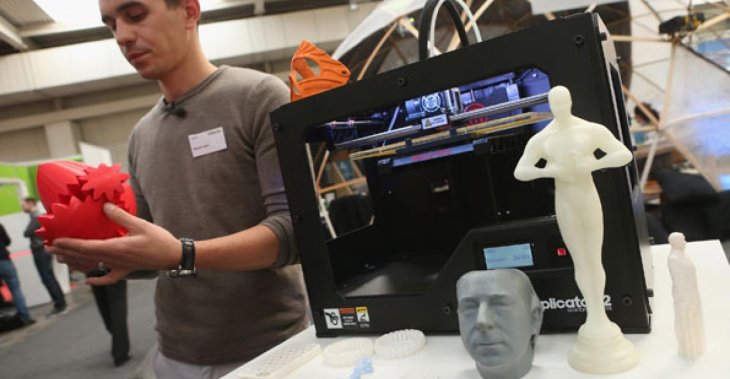Manufacturing Sectors In India Are Quickly Swifting To Automation
Arnav Dhar - May 20, 2019

With the technology advance of Industry 4.0, India's manufacturing area is changing swiftly thanks to the applications of automation.
- Delhi Is The World’s Most Polluted Capital City For Three Years In A Row
- Indian Farmers Install High-Tech, Night-Vision CCTV Cameras To Protect Themselves
- Looking For The Best Electric Bike In India 2021? Take A Look At These
With the technology advance of Industry 4.0, India's manufacturing area is changing swiftly. It is understandable that to keep being competitive and well-developed, the factories across the country are becoming smarter and more productive thanks to automation.
Take Thermax's new plant at Dahej, Gujarat, for instance. The firm had a staff cutback in its chemical processes which involved ion-exchange resin and create dedicated algorithms for the whole process. The system is fed with the designated formulas and procedures. The chemicals will then be released from their tanks on top of the five-story structure. When they are poured down, the steamers and chillers below will then be ready to work with the programmed pressure and temperature.

According to Thermax's managing director Unnikrishnan, it was "tough" to create all the algorithms in order to automate an used-to-be-manual process.
Thanks to automation, Thermax' new Sri City-based factory is advanced enough to reduce an original 40-day-long production process to a 15-day-long one. It is trying to automate its other 13 factories, a part of which is now as old as 40 years.
Estimations show that the whole of India's automation market is worth $2 billion. However, the levels of automation are different from sector to sector.
The manufacturers of the consumer goods have started to integrate IoT into their processes, they have also brought robots to the shop floor.
Automakers are using AR and VR in training employees, especially those who are working in sophisticated producing steps.
Other sectors are witnessing production drawings replaced with handheld devices, which helps minimize the risk of errors. 3D printers have been brought in too.
Larsen & Toubro, an engineering giant, is also automating its manufacturing process in both construction sites and shop floors. For example, an used-to-manual process like welding is now automated and monitored by an operator via consoles. According to the company's CDO Anantha Sayana, this improvement in technology helps enhance the work's quality and help the workers have a better working environment.
Starting in 2016, L&T digitalized its construction sector, which worthed 60% of it. Since then, 9,600 pieces of equipment from more than 400 construction sites have been connected and installed with gateways and sensors. These sensors are said to create a huge amount of data, but to ensure that it works flawlessly with better security and is easier to use and control, they integrated both IT and OT.

Hosur-based cab panel pressing factory of Ashok Leyland was also automated lately. The original presses and dies processes were improved with automation. Thanks to the improvements, its productivity soon doubled.
According to Harihar P, the company's VP:

The whole process now ensures perfect quality for the products. The factories of automaker M&M, which used to be only manual, are now occupied 70% by the robots. CEO Vijay Kalra highlighted the importance of adopting technology in manufacturing by saying it is "critical". He also noted that those who work on the technology "should be well-versed with it."
Unity Technologies India's Anumukonda Ramesh said that the auto industry is quickly prototyping some AR/VR and 3D solutions.
Reliance Industries is another giant interested in VR since it finds the tech helpful for employees training and in safety tests for productions. The company said in its last year's annual report that 3D printing would play an important role in its digital manufacturing architecture. The report stated:

Currently, most companies are using their internal teams for designing and shifting to automation, partnerships with vendors and startups are for the actual tech. Sayana from L&T highlighted this while saying that the techs and platforms are always available, so the remaining of the works is kept internal, not to mention group companies can always share services and expertise.

Yet the automation hasn't been easy.
While shifting to an automation player, Mahindra's Kalra expressed that they faced many difficulties when it particularly comes to IT infrastructure, skills gap, and equipment's compatibility.
Other worries which slow the automation process include difficulties in upgrading inherent systems with new techs and cooperation weaknesses in the value chains.
Technological upgrades will never reach their full potential given that the whole ecosystem of firms, suppliers, and companies can't work together and instead follow individual interests, according to a member from Protivity.
The challenges exist, yet automation is a manifest trend, as the tech giants are urgently following the process.
It is proven that the tracking systems on input materials in Thermax's and L&T's factories are working effectively to provide better knowledge for manufacturing as well as eliminating rates of wastage.
For now, investing in new 4.0 techs seems to be soaringly expensive, but in the long run, it is promising that companies will save more costs if they choose to follow an up-to-date, suitable process.
Featured Stories

Features - Jan 29, 2026
Permanently Deleting Your Instagram Account: A Complete Step-by-Step Tutorial

Features - Jul 01, 2025
What Are The Fastest Passenger Vehicles Ever Created?

Features - Jun 25, 2025
Japan Hydrogen Breakthrough: Scientists Crack the Clean Energy Code with...

ICT News - Jun 25, 2025
AI Intimidation Tactics: CEOs Turn Flawed Technology Into Employee Fear Machine

Review - Jun 25, 2025
Windows 11 Problems: Is Microsoft's "Best" OS Actually Getting Worse?

Features - Jun 22, 2025
Telegram Founder Pavel Durov Plans to Split $14 Billion Fortune Among 106 Children

ICT News - Jun 22, 2025
Neuralink Telepathy Chip Enables Quadriplegic Rob Greiner to Control Games with...

Features - Jun 21, 2025
This Over $100 Bottle Has Nothing But Fresh Air Inside

Features - Jun 18, 2025
Best Mobile VPN Apps for Gaming 2025: Complete Guide

Features - Jun 18, 2025
A Math Formula Tells Us How Long Everything Will Live
Read more

ICT News- Feb 19, 2026
Escalating Costs for NVIDIA RTX 50 Series GPUs: RTX 5090 Tops $5,000, RTX 5060 Ti Closes in on RTX 5070 Pricing
As the RTX 50 series continues to push boundaries in gaming and AI, these price trends raise questions about accessibility for average gamers.

ICT News- Feb 18, 2026
Google's Project Toscana: Elevating Pixel Face Unlock to Rival Apple's Face ID
As the smartphone landscape evolves, Google's push toward superior face unlock technology underscores its ambition to close the gap with Apple in user security and convenience.

Mobile- Feb 17, 2026
Anticipating the Samsung Galaxy S26 and S26+: Key Rumors and Specs
The Samsung Galaxy S26 series is on the horizon, sparking excitement among tech enthusiasts.
Comments
Sort by Newest | Popular